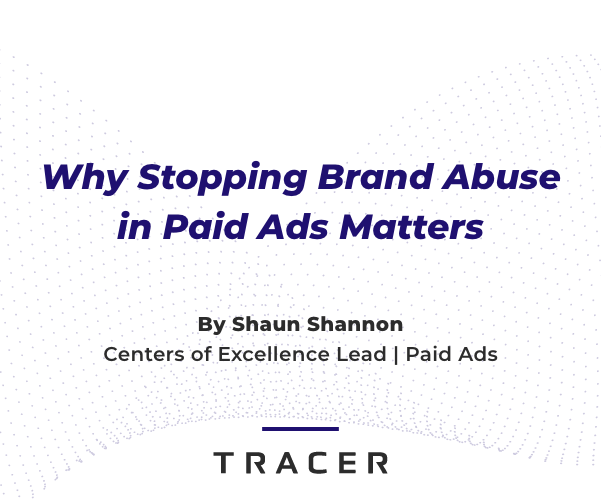Why Stopping Brand Abuse in Paid Ads Matters
By Shaun Shannon, Centers of Excellence Lead | Paid Ads
In today’s digital landscape, paid advertisements are a powerful tool for businesses to reach their target audience, boost conversions, and maximize ROI. However, the misuse of trademarks and brand identity in these ads by bad actors using tactics like ad hijacking and trademark infringement can have severe repercussions. Let’s explore why both legal and marketing audiences should care about online brand abuse in paid ads and the broader implications for businesses and consumers alike.
Trademark Infringement
When paid ads misuse or misrepresent trademarks, it constitutes trademark infringement. This can lead to confusion among consumers, damaging the brand’s reputation and diverting traffic and sales away from the legitimate brand. Protecting trademarks is crucial to maintaining brand identity and consumer trust.
Consumer Protection
Brand abuse in paid ads often involves deceptive practices that mislead consumers. Such practices violate consumer protection laws and regulations designed to ensure transparency and fair competition in the marketplace. Upholding these laws is essential for fostering a trustworthy commercial environment.
Loss of Revenue
Advertisers misusing a brand’s trademark in paid ads can siphon off potential customers who intended to engage with the legitimate brand. This results in lost revenue and market share for the brand owner. Ensuring that ads are associated with a brand helps secure its financial health and market position.
Reputation Management
Scam ads tarnish a brand’s reputation through misleading claims or association with low-quality products, which can undermine years of brand building and consumer trust, thereby creating brand confusion. Protecting your brand in paid ads can help restore the brand’s reputation ensuring that its image remains strong and positive.
Legal Compliance
Businesses have a responsibility to ensure that their advertising practices comply with local and international laws. Taking action against brand abuse in paid ads helps enforce these laws and maintain a level playing field in the marketplace. Compliance with legal standards is non-negotiable for sustainable business practices.
Prevent Further Abuse
Taking action against instances of brand abuse in paid ads sends a clear message to infringers and potential violators that such practices will not be tolerated. This deterrence can prevent future abuse and protect the brand’s intellectual property rights proactively.
Cost-Per-Click
Knowing that keyword competition can drive up the cost-per-click (CPC) in paid advertising, taking action against infringing advertisers can help reduce keyword costs and improve the overall efficiency of ad spend.
Ad Hijacking
Ad hijacking undermines ad campaigns, lowers click-through rates, and results in lost conversions, wasting advertisers’ investments and harming brand reputation
Conclusion
By taking a stand against brand abuse, businesses can maintain their reputation, protect their revenue, and contribute to a fair and transparent marketplace. For legal audiences, addressing these issues helps safeguard the brand’s interests and ensures compliance with regulatory frameworks aimed at protecting businesses and consumers alike. For marketing audiences, addressing infringing advertisers and ad hijacking can significantly reduce keyword costs, improve the efficiency and effectiveness of ad campaigns, and protect their investments and brand reputation.

